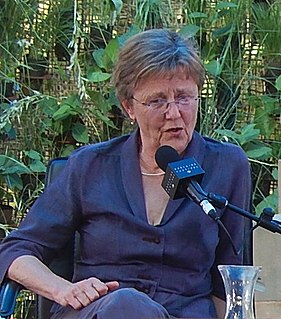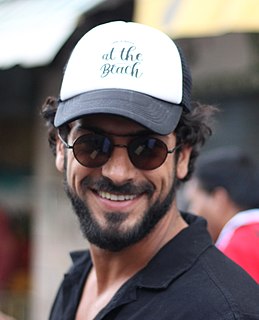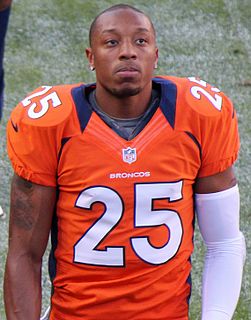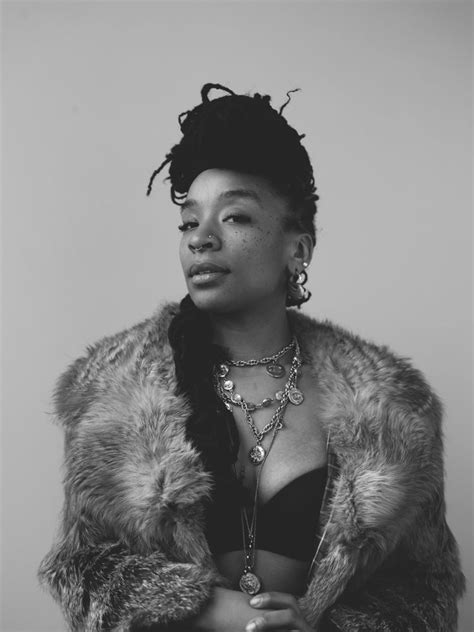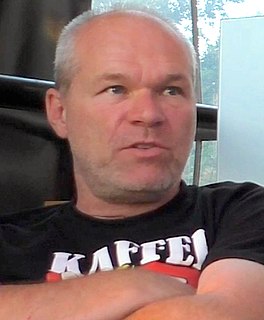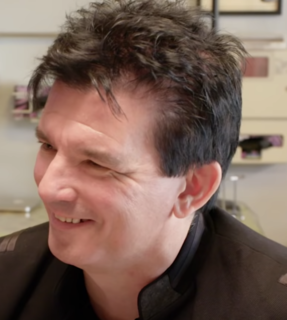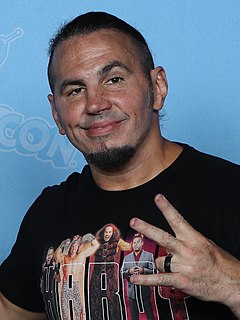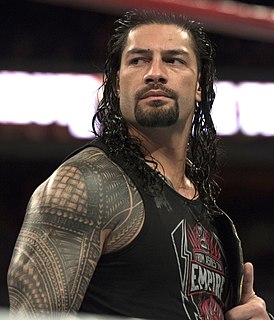A Quote by Bill Goldberg
The story behind 'Check Point' is what drew me in. The script had a couple of twists that I really did not see coming... To get out there and raise people's awareness, I think there's a big responsibility in that.
Related Quotes
What we did in the 1960s and early 1970s was raise the consciousness of white America that this government has a responsibility to Indian people. That there are treaties; that textbooks in every school in America have a responsibility to tell the truth. An awareness reached across America that if Native American people had to resort to arms at Wounded Knee, there must really be something wrong. And Americans realized that native people are still here, that they have a moral standing, a legal standing. From that, our own people began to sense the pride.
I think that there must be a point of self-immersion in a story that is a point of no return. You get far enough in that the story has really touched you to the core and deeply troubled you and made you unhappy and fearful, and then how do you get out of that? I'm a writer, so my way of getting out of that is to write.
I had 50 pastors, ministers, I had priests, I had a couple of rabbis in a big conference room in one of my buildings. And we're talking and I could see they really liked me. But I could also see they couldn't endorse me. I said, "Just out of curiosity, why?""Well, we can't do it because we'll lose our tax-exempt status."
It wasn't exactly a cattle call. I had an agent, and they were seeing people for the parts, so my agent said, "Here's the script, see if there's anything that speaks to you." And I did, and I called my agent and said, "I think this character Data is kind of interesting," and she said, "Well, okay, I'll get you the appointment with Junie Lowry." I had to read with the casting agent first, 'cause nobody really knew me then. Then after that, I had, I think, six different auditions for the role. And finally it was me [on Star Trek].
My wife told me, "Listen, you have to do something big, beautiful story." I remember that I read The Shack script and I told her that there is a big message over here, and as a Jew, I read the script, and I didn't see anything that connects to religion. It's not about religion, it's about faith, it's about God, and I connected with it, because from my point of view, there is God in this world.
It's really the story of a young woman, or two women, growing up in Naples in a poor neighborhood. The way that they get out of it - or don't get out of it - that's part of it. But it's also the story of the mid-20th century in Italy so it's really like a social, historical and personal novel. I think that even though I didn't live in Italy in those years, it did cover that same type of generational upbringing that someone like me might've had in America.
I want to say that what is cool about writing self-aware first person narrative is that the awareness is not necessarily the same awareness of the reader. I have a story coming out in the Paris Review and it's about a hipster. He think's he's self-aware, he's very introspective and analytical, but when you're reading it you can totally see through his self-analysis because you have a higher awareness than he does. I like playing with that too.
I really like the "two is better than three" line. People ask me is this drama or comedy? I just think the more colors you have to a film the better. The more genres, the more people will like it. I like relating to the whole general speaking public. The script itself is 99 pages but the novel it is based on is 600. I had to leave a lot of stuff out of the script. I had a limitation of what I could present on the big screen.
The underdog is a person that's at-risk, a person that has a lot of big trials you have to overcome. I mean that was my life. Me - coming from a single parent home. I didn't have offers coming out of high school. So I had to really have faith and lean on Jesus for everything because nothing was given to me. I had to really work for everything. I'm definitely an underdog. I think Jesus made me be in that situation to be able to relate to more people. That's why give back to the at-risk kids.
I went to an art high school in Washington D.C., and I majored in visual art. When I started there, I was horrible - couldn't draw, couldn't sketch, couldn't do anything. I remember at one point I came to terms with the fact that I had to work my ass off to do well and that's exactly what I did. I drew and drew and drew, and it worked - I ended up getting the award for best artist and went on to apply to design school because I loved it so much. I think it really speaks to the idea that you can in fact excel at whatever you put your mind and your heart to.
I get most of my reviews through e-mail, and then I go and read it and go on message boards to check it out. I want to see what's out there and to better estimate my position. I'm definitely happy that a lot of people are voting positively for Postal - especially the hundreds and hundreds who actually saw it. Still, there are a lot of people who didn't see it who are giving me only one point out of 10 because they hate me, and it has nothing to do with the movie.



